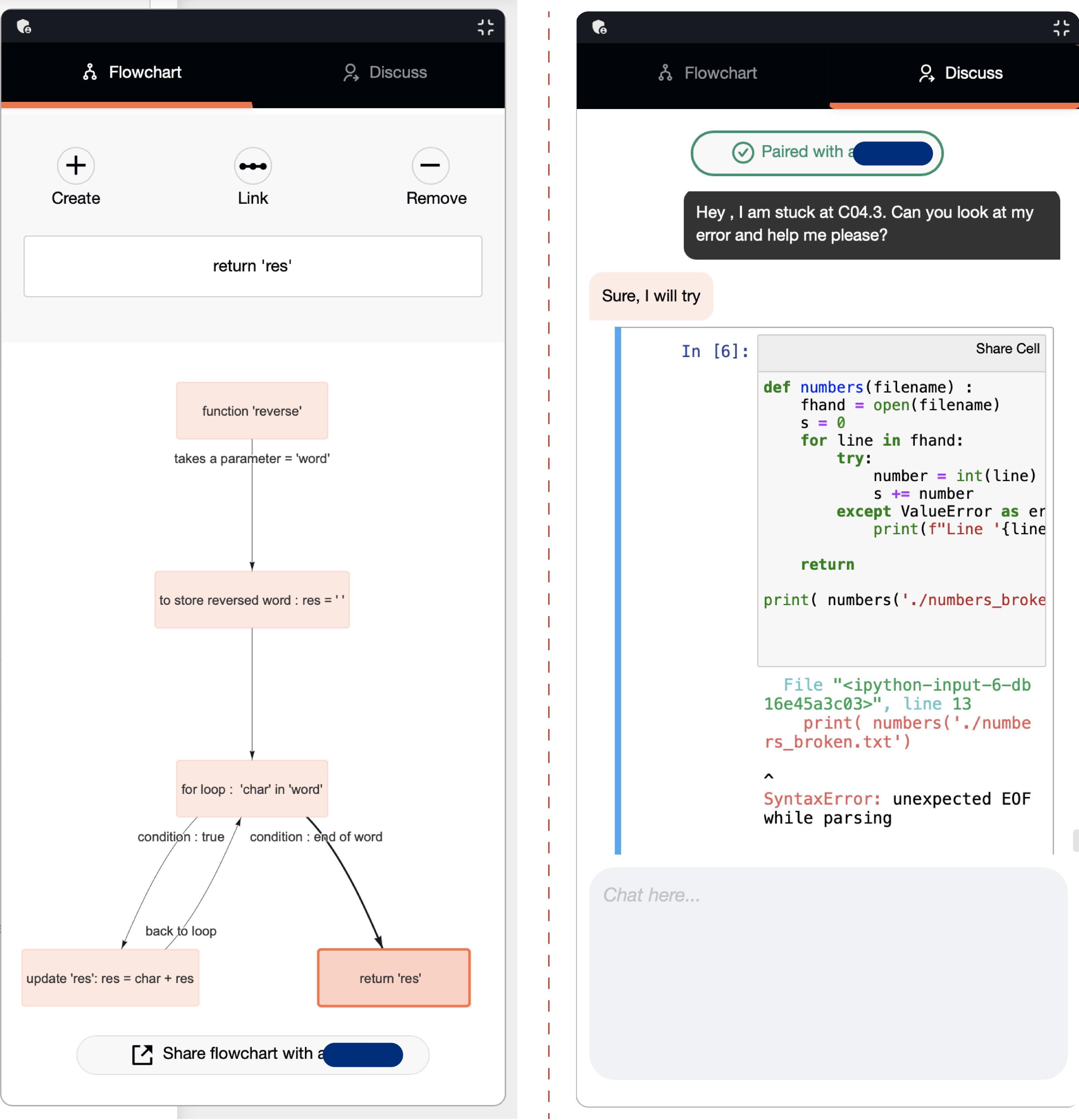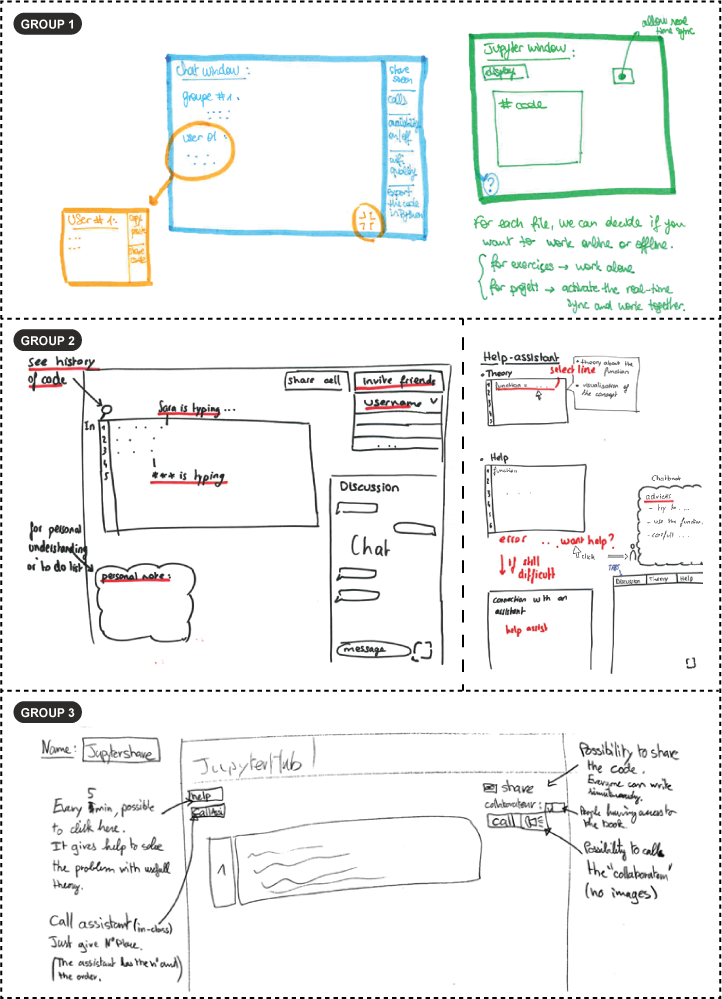︎ Collaborative Interventions for Novices to Learn Programming
This research focuses on studying collaborative learning interactions that may facilitate the construction of pedagogically rich programming learning experiences for novices. We are particularly interested in understanding how an individual’s programming learning behaviour unfolds in a social learning context. We intend to foster novices’ learning behaviour by designing interventions for programming platforms that help mediate collaborative interactions amongst learners for a positive learning outcome and thereby also enhancing their programming learning experience.

︎ Supporting Co-Regulation and Motivation in Learning Programming in Online Classrooms
Lahari Goswami, Alexandre Senges, Thibault Estier, and Mauro CherubiniCSCW 2023
Designed Thyone, a collaborative Jupyter Notebook extension to support students' programming learning in social settings, and investigated its influence on co-regulation and motivation in online introductory programming classrooms.RESOURCES
︎︎︎ Paper in ACM CSCW 2023 : https://doi.org/10.1145/3610089︎︎︎ Medium Blog Post :
︎ here

︎ Supporting Collaboration in Introductory Programming Classes Taught in Hybrid Mode: A Participatory Design Study
Lahari Goswami, Pegah Sadat Zeinoddin, Thibault Estier, and Mauro CherubiniACM DIS 2023
Conducted a participatory design study with students from a hybrid-taught introductory programming course to identify novices' challenges and perspectives on hybrid collaboration in programmin workspaces, and proposed design principles for future collaborative programming workspaces.︎ Transparent Research Practices in HCI
To increase research efficiency and enable robust scientific findings, researchers must adopt transparent and open research practices, allowing for the replication and reproducibility of their studies and allowing other researchers to extend and build further research from their studies. This is especially important in the field of Human Computer Interaction (HCI), which deals with a broad range of human experiences and activities. As such the importance of ethical research considerations, open science initiatives and transparent research practices are paramount in the field and should be promoted.
︎ Changes in Research Ethics, Openness, and Transparency in Empirical Studies between CHI 2017 and CHI 2022
Kavous Salehzadeh Niksirat, Lahari Goswami, Pooja S. B. Rao, James Tyler, Alessandro Silacci, Sadiq Aliyu, Annika Aebli, Chat Wacharamanotham, and Mauro CherubiniACM CHI 2023 ![]()
Evaluated the state of research ethics, openness and transparency practices in the field of HCI by operationalising these three aspects into 45 criteria, and compared a total of 245 empirical papers from CHI 2017 and CHI 2022 against the list of criteria. RESOURCES
︎︎︎ Paper in ACM CHI 2023 : https://doi.org/10.1145/3544548.3580848
︎︎︎ Supplementary materials:
https://osf.io/n25d6/
︎︎︎ Video Presentation : ︎

︎ Transparent Quantitative Research as a User Interface Problem (Dagstuhl Seminar 22392)
Chat Wacharamanotham, Yvonne Jansen, Amelia A McNamara, Kasper Hornbæk, Judy Robertson, Lahari GoswamiDAGSTUHL SEMINAR 2023
This Dagstuhl Seminar convened researchers from Human–Computer Interaction (HCI), Visualization (VIS), statistics, and psychology to address challenges in promoting and adopting research transparency, develop prototypes of solutions, and seek feedback from policy influencers, fostering future collaborations to improve research transparency across scientific fields.
